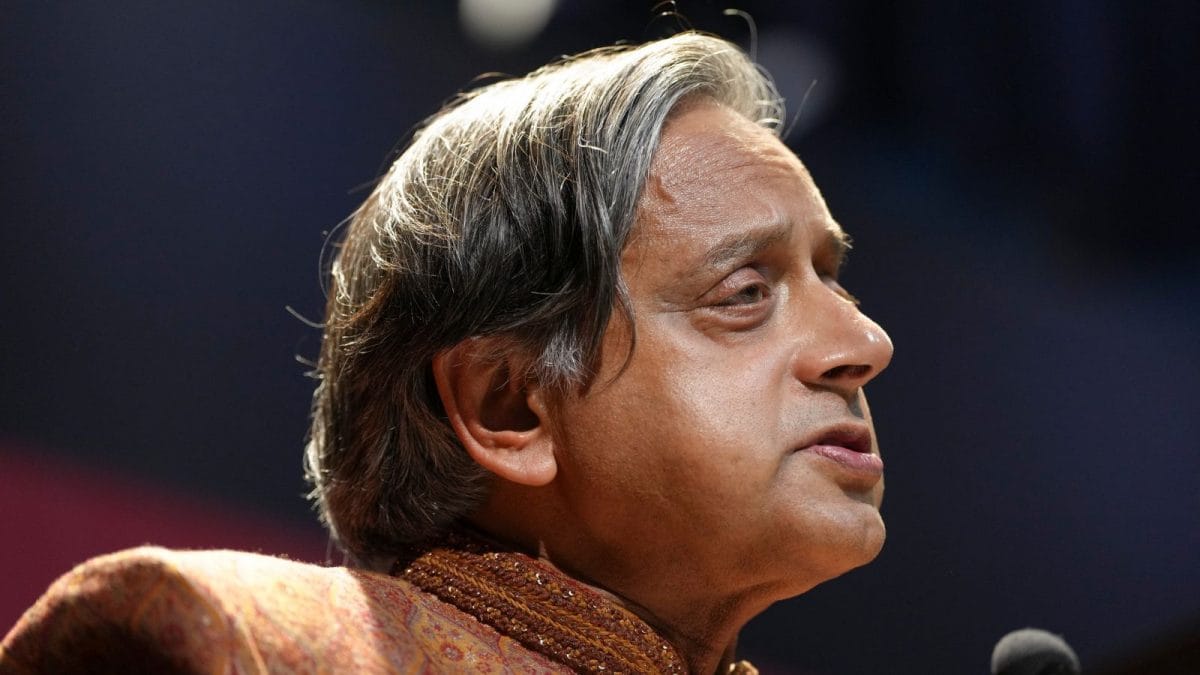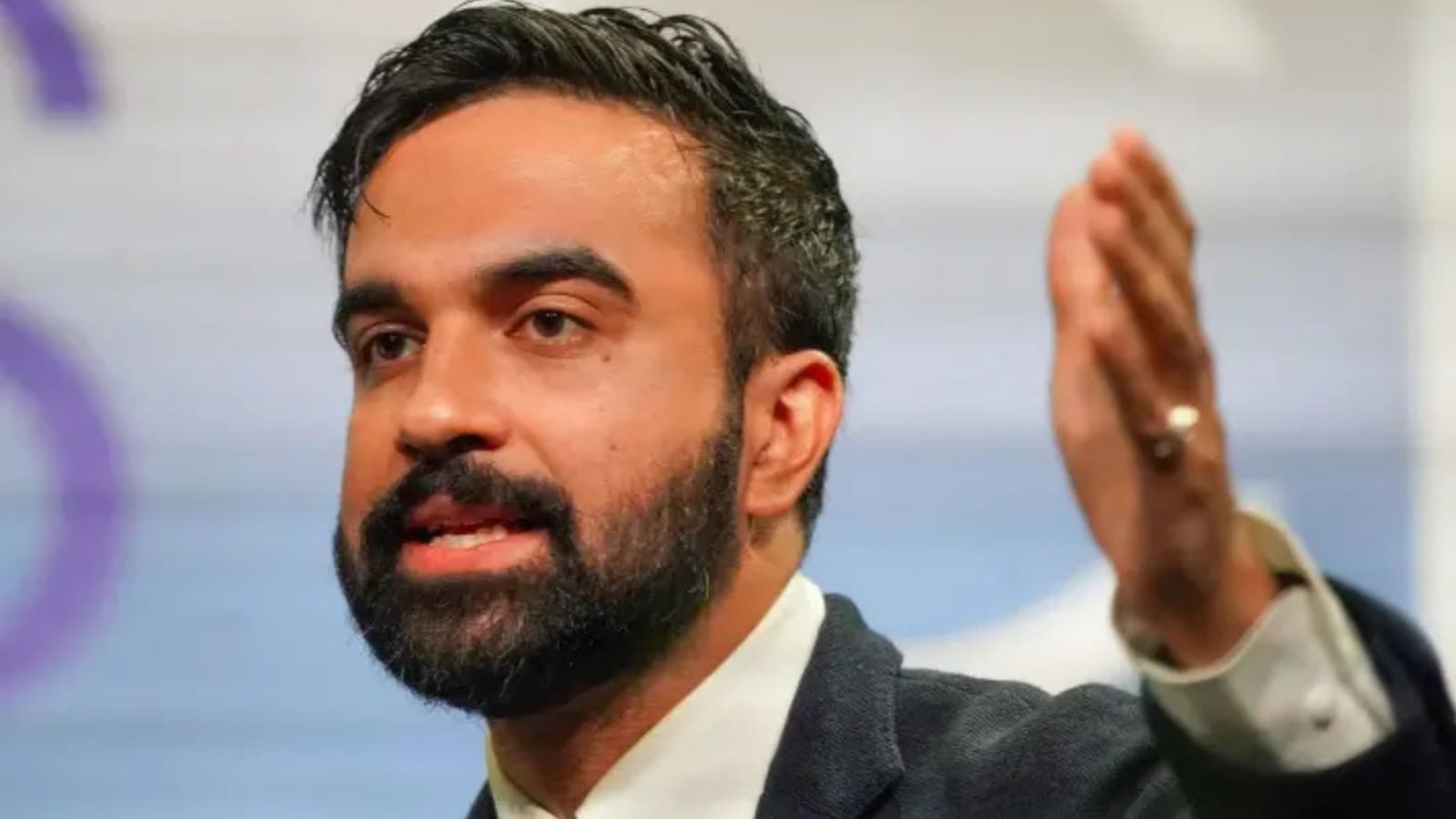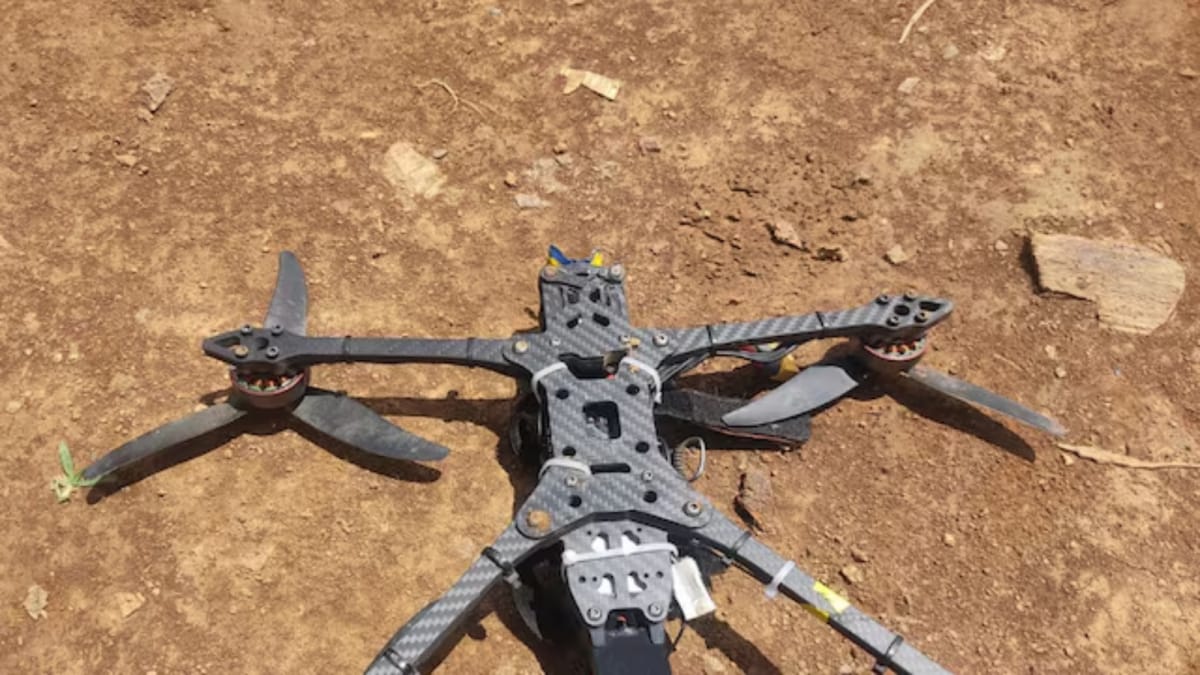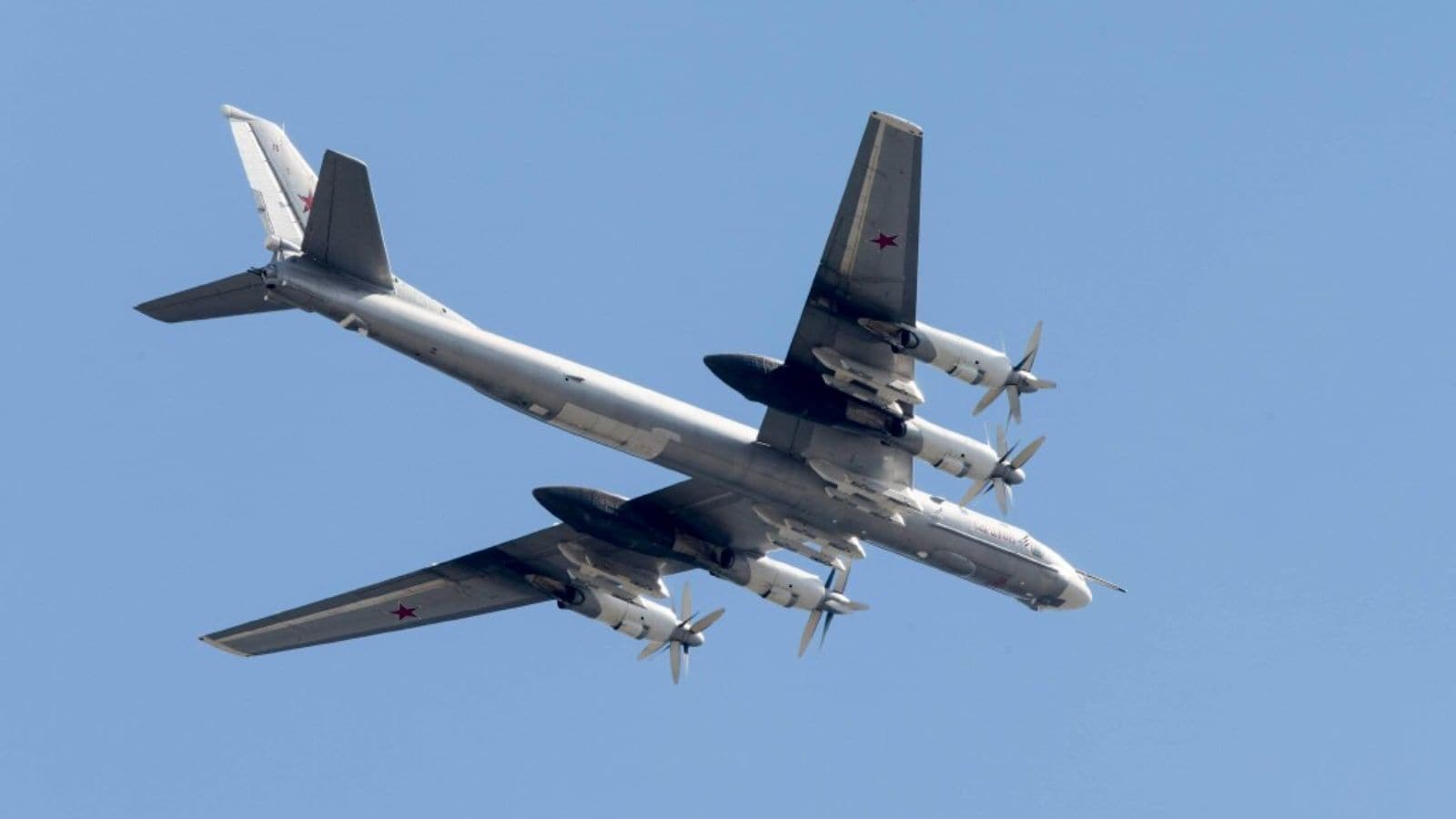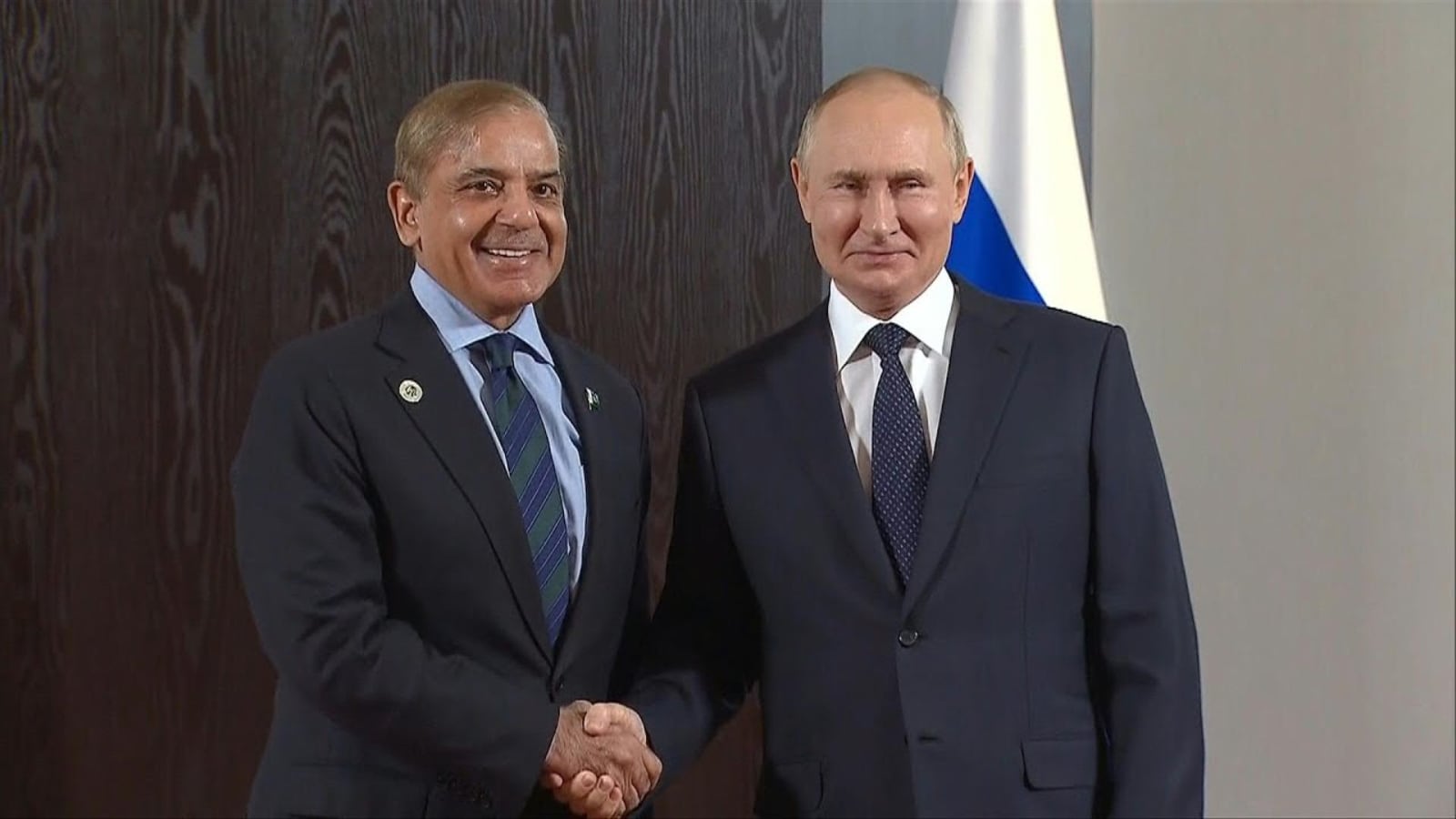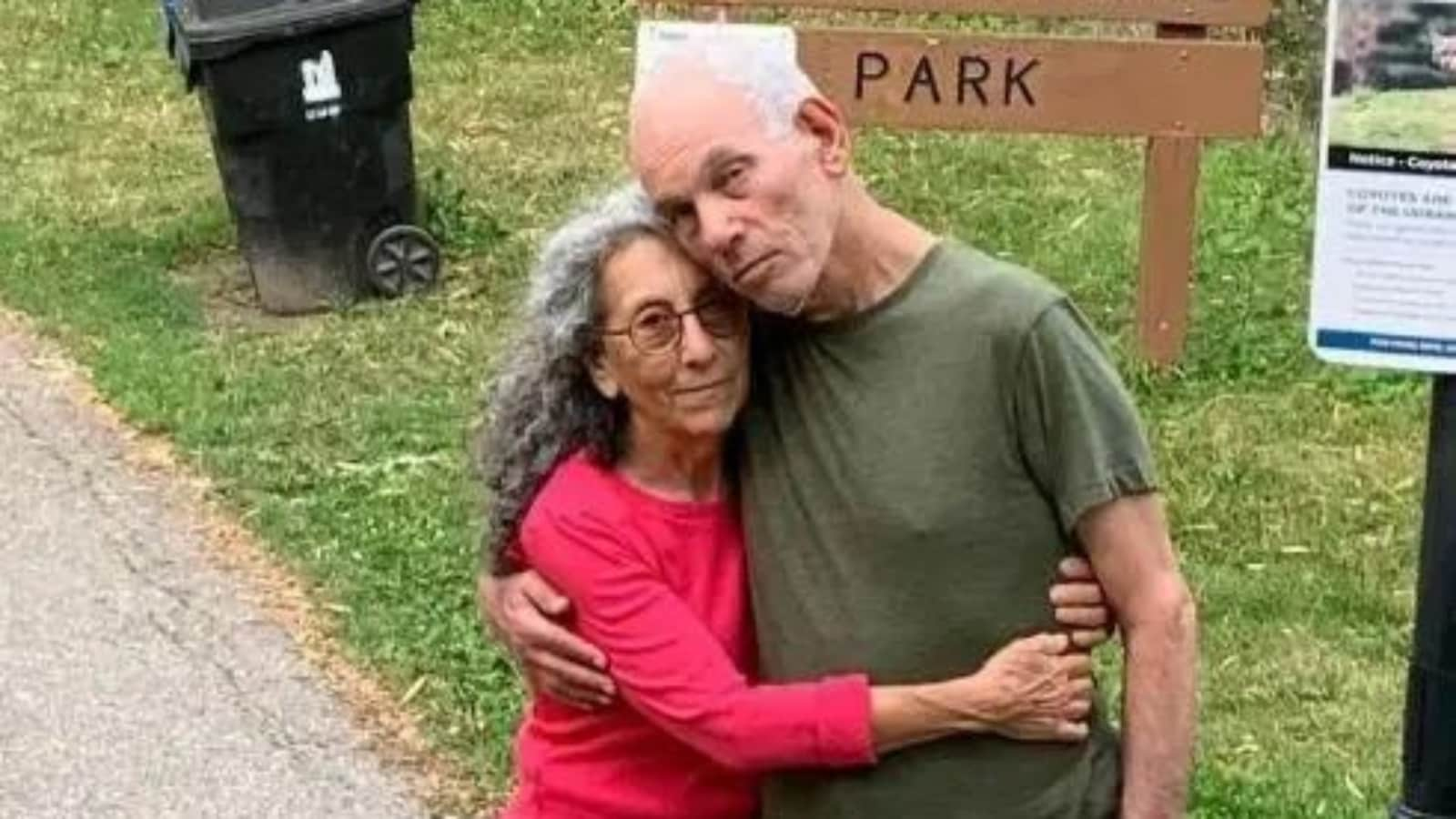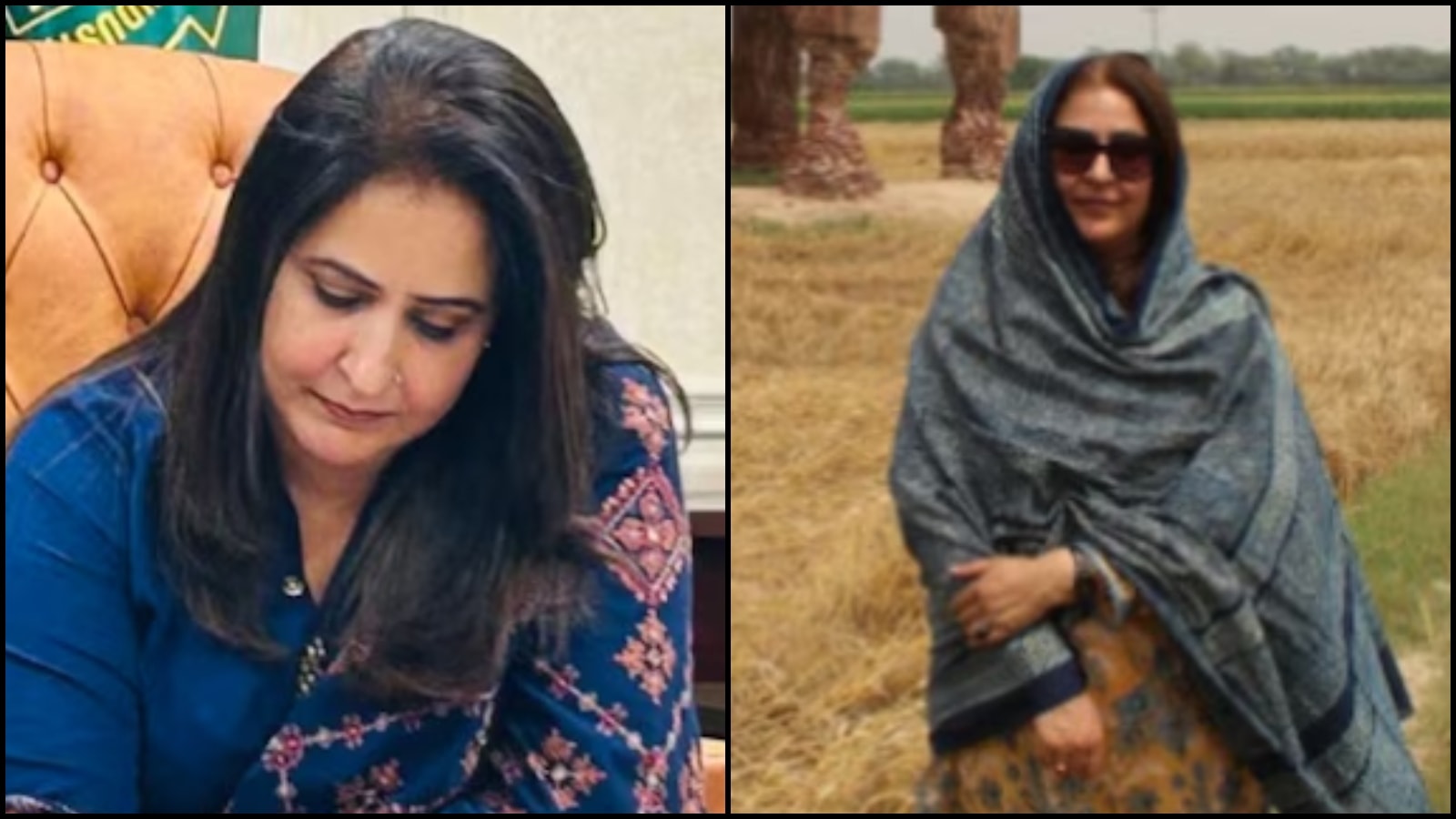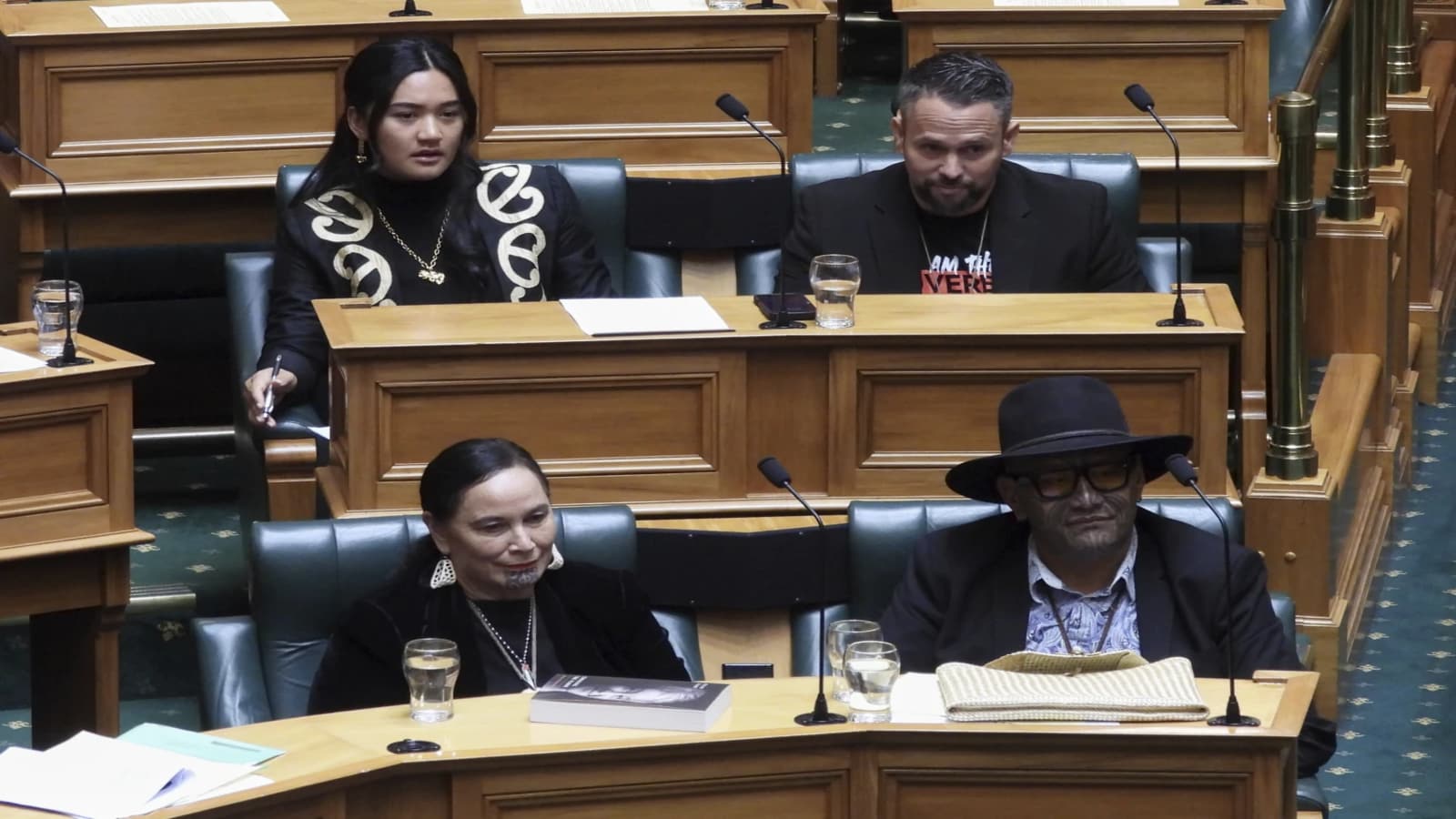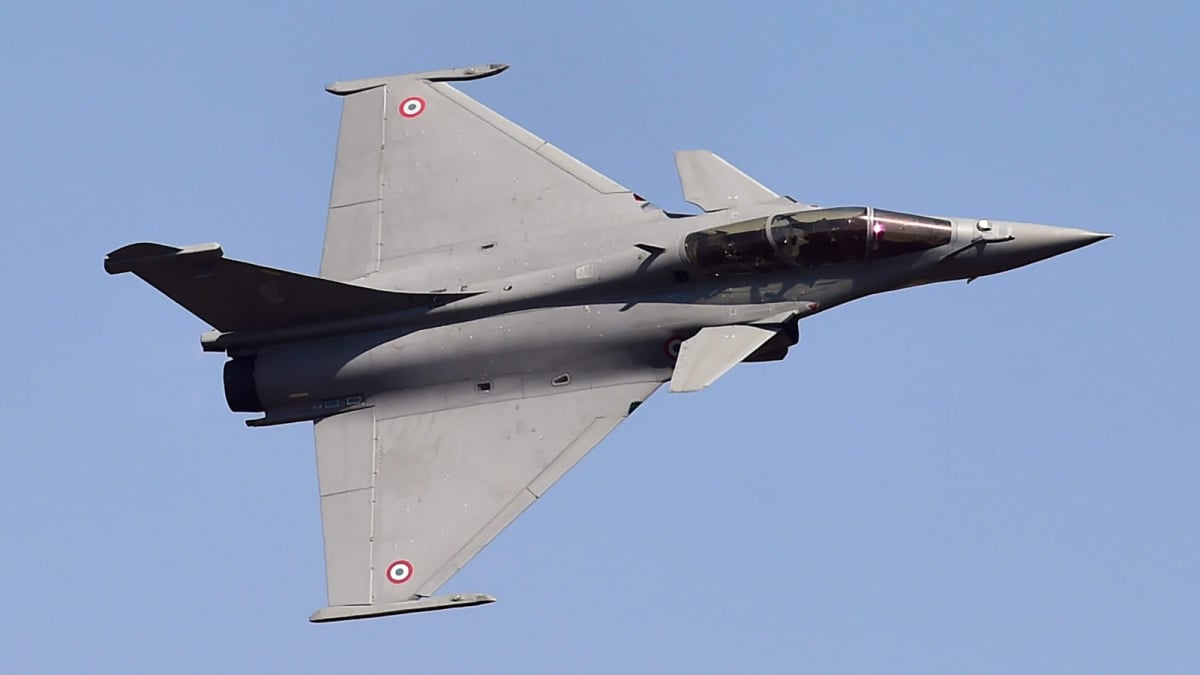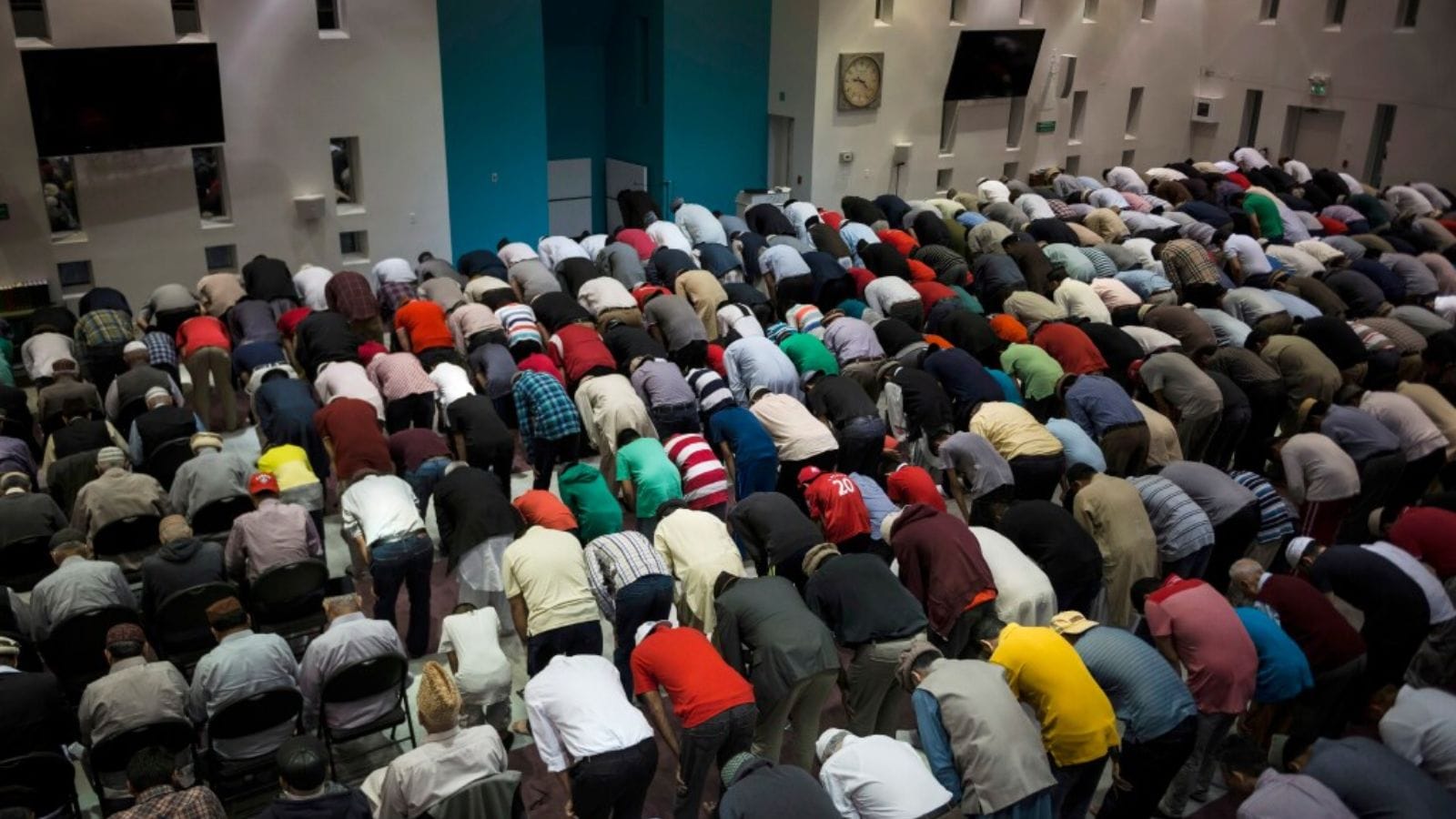Dutch PM steps down after Geert Wilders quits coalition
The Dutch prime minister Dick Schoof has stepped down from his post following Geert Wilders’s decision to quit the coalition government over a dispute about asylum and immigration policy.
The Dutch government, a coalition between Wilders’ anti-Islam Freedom party (PVV), the largest party, the populist Farmer-Citizens Movement (BBB), the centrist New Social Contract (NSC) and the liberal People’s Party for Freedom and Democracy (VVD), has now effectively collapsed.
Wilder’s decision will now mean snap elections will be called, although it is unclear when at this stage.
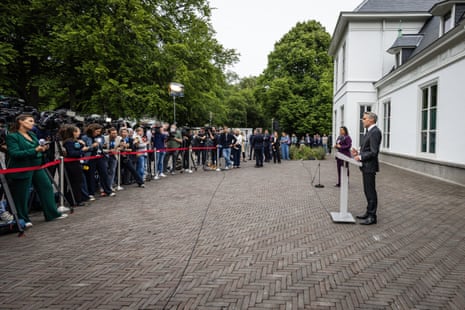
Key events Show key events only Please turn on JavaScript to use this feature
Closing summary
The Dutch prime minister Dick Schoof has stepped down from his post following Geert Wilders’s decision to quit the coalition government over a dispute about asylum and immigration policy. The Dutch government, a coalition between Wilders’ anti-Islam Freedom party (PVV), the largest party, the populist Farmer-Citizens Movement (BBB), the centrist New Social Contract (NSC) and the liberal People’s Party for Freedom and Democracy (VVD), has now effectively collapsed.
Ukraine’s SBU security service said on Tuesday it had hit the road and rail bridge linking Russia and the Crimean peninsula below the water level with explosives. The SBU said in a statement on the Telegram app that it had used 1100 kilograms of explosives which were detonated early in the morning, damaging underwater pillars of the bridge, a key supply route for Russian forces in Ukraine.
Road traffic on the bridge linking Russia and the Crimean peninsula has resumed, Russian authorities said on Telegram on Tuesday. Ukraine’s SBU security service said on Tuesday it had hit the road and rail bridge with underwater explosives.
Russia’s state Investigative Committee accused Ukraine on Tuesday of carrying out “acts of terrorism” by blowing up two railway bridges in Russia over the weekend. The attacks were planned to target hundreds of civilians, the committee said on Telegram.
Yevgeny Balitsky, the Russian-installed head of the Zaporizhzhia region in southern Ukraine, said the process of reconnecting consumers to the power grid was under way after a Ukrainian attack left people without power. Balitsky said on Telegram that around 20% of the more than 600,000 people left without electricity now had power again.
The Kremlin says it is “unlikely” a meeting between Russian president Vladimir Putin, his Ukrainian counterpart, Volodymyr Zelenskyy, and US president Donald Trump would take place soon. “In the near future, it is unlikely,” Kremlin spokesperson Dmitry Peskov told reporters when asked about the chances of a meeting, adding that such a summit could only happen after Russian and Ukrainian negotiators reach an “agreement”.
Defence sources believe that Britain will be forced to sign up to a target of lifting defence spending to 3.5% of GDP by 2035 at this month’s Nato summit after a campaign by the alliance’s secretary general to keep Donald Trump onboard. One senior insider said Britain would “without a doubt” sign up to a proposal from the Nato chief, Mark Rutte, to lift allies’ defence spending, which would represent a real-terms increase of about £30bn from the Labour government’s plan.
US secretary of defense Pete Hegseth will go to Brussels on Thursday to participate in the Nato defence ministers meeting and travel to Normandy, France, on Friday for D-day commemorations, the department said in a statement. Hegseth will deliver a message advancing President Donald Trump’s call for Nato allies to commit spending 5% of their GDP on defence, the department said on Tuesday.
Following on from the announcement earlier today that a vote of confidence in the Polish government will take place on 11 June, the Polish prime minister Donald Tusk said the vote was due to a “new political reality” facing the country. He requested the vote after his political ally, the liberal Warsaw mayor, lost Poland’s weekend presidential election to conservative Karol Nawrocki.
US secretary of defense Pete Hegseth will go to Brussels on Thursday to participate in the Nato defence ministers meeting and travel to Normandy, France, on Friday for D-day commemorations, the department said in a statement.
Hegseth will deliver a message advancing President Donald Trump’s call for Nato allies to commit spending 5% of their GDP on defence, the department said on Tuesday.
China denied on Tuesday that its scientific and technological achievements were due to “stolen” intellectual property, after comments by the Dutch defence minister accusing Beijing of intensifying its espionage, especially on semiconductors.
China firmly opposes attempts to “smear” it using accusations of “spying” and “cyber-attacks” as a pretext, the Chinese foreign ministry said in a written response to Reuters. It urged relevant sides to look at China objectively and fairly.
The Dutch military intelligence agency said last year that Chinese spies had targeted the Dutch semiconductor, aerospace and maritime industries. Such attacks have intensified, Dutch defence minister Ruben Brekelmans said at a forum on Saturday.
Russia says traffic on Crimea bridge resumed
Road traffic on the bridge linking Russia and the Crimean peninsula has resumed, Russian authorities said on Telegram on Tuesday.
Ukraine’s SBU security service said on Tuesday it had hit the road and rail bridge with underwater explosives.
Russia’s state Investigative Committee accused Ukraine on Tuesday of carrying out “acts of terrorism” by blowing up two railway bridges in Russia over the weekend.
The attacks were planned to target hundreds of civilians, the committee said on Telegram.
It said seven people were killed and 113 injured, including children, when two trains crashed in Russia’s Kursk and Bryansk regions as a result of the attacks.
Dick Schoof is a career civil servant who was handpicked by Geert Wilders a year ago to lead the government.
He had tried to prevent the break up of the coalition this morning, but the meeting was short lived, with Wilders effectively collapsing the government when he walked out of it.
The far-right leader had said earlier on Tuesday that all his party’s ministers would quit the government after the other three parties in the coalition had rejected his radical proposals on immigration.
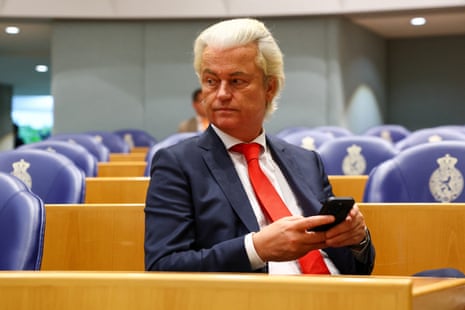
As my colleague Jon Henley notes in this story, Wilders had warned last week that if his plans were not adopted, the PVV – the largest party in parliament, with 37 seats – would be “out of the cabinet”.
He wanted the coalition to adopt a 10-point plan aimed at radically reducing immigration and asylum, including enlisting the army to secure and patrol the borders, turning all asylum seekers back at the border and closing refugee accommodation facilities.
Wilders also proposed sending all Syrian refugees home, suspending EU asylum quotas and banning family members joining refugees already in the country. Legal experts have said several of the proposals breached European human rights laws or the UN refugee convention, to which the Netherlands is a signatory.
Dutch PM will lead caretaker administration until new elections
Dick Schoof is expected to offer the resignation of the cabinet to King Willem-Alexander before the end of the day.
Schoof said Wilders’ dramatic decision to leave the coalition was “irresponsible and unnecessary”. “As far as I’m concerned, this shouldn’t have happened,” he said.
Schoof said his coalition government will become a caretaker administration up until the new election, a date for which has not been set yet.
It means that the Netherlands will have a caretaker government when it hosts a summit of Nato leaders in three weeks, during which alliance members will likely be asked to commit more money to defence spending amid mounting concerns about Russian aggression spreading beyond Ukraine.
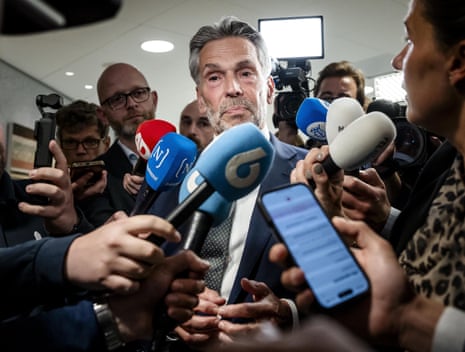
Dutch PM steps down after Geert Wilders quits coalition
The Dutch prime minister Dick Schoof has stepped down from his post following Geert Wilders’s decision to quit the coalition government over a dispute about asylum and immigration policy.
The Dutch government, a coalition between Wilders’ anti-Islam Freedom party (PVV), the largest party, the populist Farmer-Citizens Movement (BBB), the centrist New Social Contract (NSC) and the liberal People’s Party for Freedom and Democracy (VVD), has now effectively collapsed.
Wilder’s decision will now mean snap elections will be called, although it is unclear when at this stage.

Nato to force UK to lift defence spending to 3.5% of GDP to appease Trump, say sources

Dan Sabbagh
Dan Sabbagh is the Guardian’s defence and security editor
Defence sources believe that Britain will be forced to sign up to a target of lifting defence spending to 3.5% of GDP by 2035 at this month’s Nato summit after a campaign by the alliance’s secretary general to keep Donald Trump onboard.
One senior insider said Britain would “without a doubt” sign up to a proposal from the Nato chief, Mark Rutte, to lift allies’ defence spending, which would represent a real-terms increase of about £30bn from the Labour government’s plan.
They expressed surprise that Keir Starmer had tied himself up over spending at the launch of the strategic defence review on Monday, when he refused to set a firm date when budgets would increase to 3%.
The prime minister has agreed to increase defence spending from its current 2.33% of GDP to 2.5% by 2027 and to 3% in the next parliament, which was the spending context for Monday’s 140-page strategic review.
You can read the full story here:
Ukraine’s Security Service said it had hit the Kerch Bridge in Crimea with underwater explosives. Here is a video showing the explosion:
Road traffic on the bridge linking Russia and the Crimean peninsula has been temporarily suspended.Russia’s embassy in London said on Tuesday that Moscow had no intention of attacking Britain, rejecting accusations by the British government of growing aggression and daily cyber-attacks.
Britain said on Monday it would radically change its approach to defence to address new threats, including from Russia, after endorsing the findings of an independently produced Strategic Defence Review, Reuters reports.
After unveiling the defence overhaul on Monday, Healey said Europe was facing war, growing Russian aggression, new nuclear risks and daily cyber-attacks.
Russia’s embassy issued a statement on Tuesday criticising what it described as “a fresh salvo of anti-Russian rhetoric”.
“Russia poses no threat to the United Kingdom and its people,” the statement said. “We harbour no aggressive intentions and have no plans to attack Britain. We are not interested in doing so, nor do we need to.”
Russia says traffic on Crimea bridge temporarily suspended
Road traffic on the bridge linking Russia and the Crimean peninsula has been temporarily suspended, Russian authorities said on Telegram on Tuesday.
Ukraine’s SBU security service said on Tuesday it had hit the road and rail bridge with underwater explosives.
Russia says it has started restoring electricity to Zaporizhzhia after Ukrainian attack
Yevgeny Balitsky, the Russian-installed head of the Zaporizhzhia region in southern Ukraine, said the process of reconnecting consumers to the power grid was under way after a Ukrainian attack left people without power.
Balitsky said on Telegram that around 20% of the more than 600,000 people left without electricity now had power again.
At least 700,000 people in parts of two Ukrainian regions controlled by Russia lost power as a result of attacks by Ukrainian forces, Russia’s news agencies reported early on Tuesday.
Ukraine’s SBU security service said on Tuesday it had hit the road and rail bridge linking Russia and the Crimean peninsula below the water level with explosives.
The SBU said in a statement on the Telegram app that it had used 1100 kilograms of explosives which were detonated early in the morning, damaging underwater pillars of the bridge, a key supply route for Russian forces in Ukraine.

 1 day ago
1 day ago
